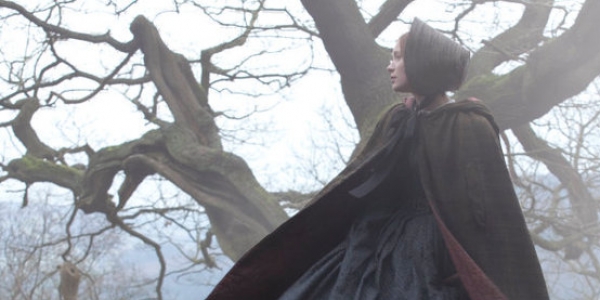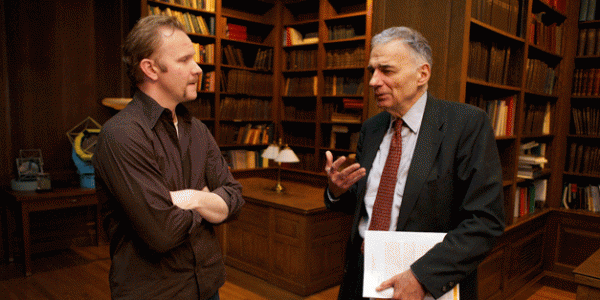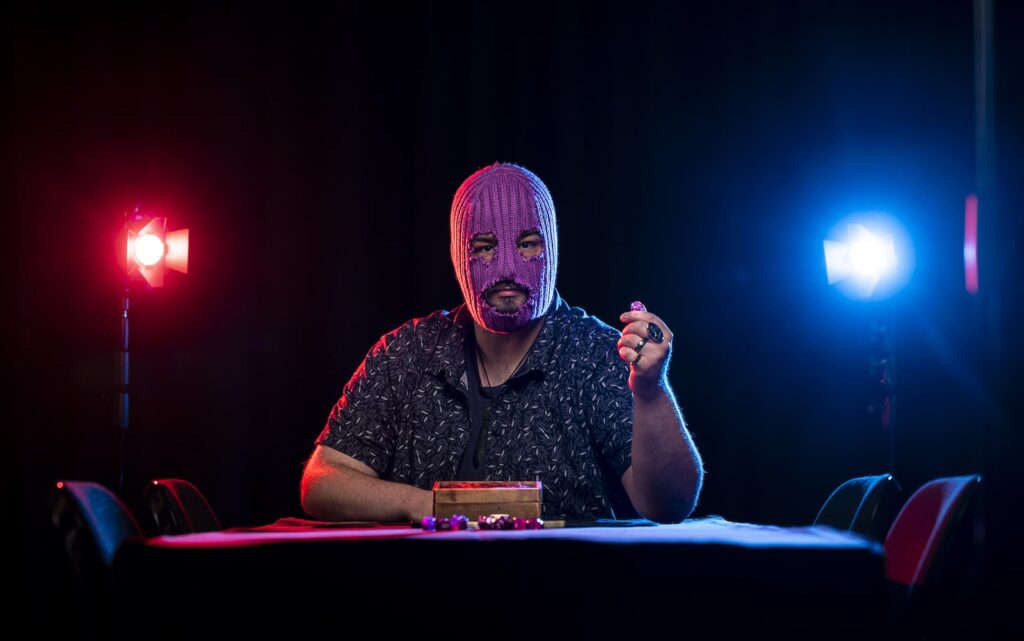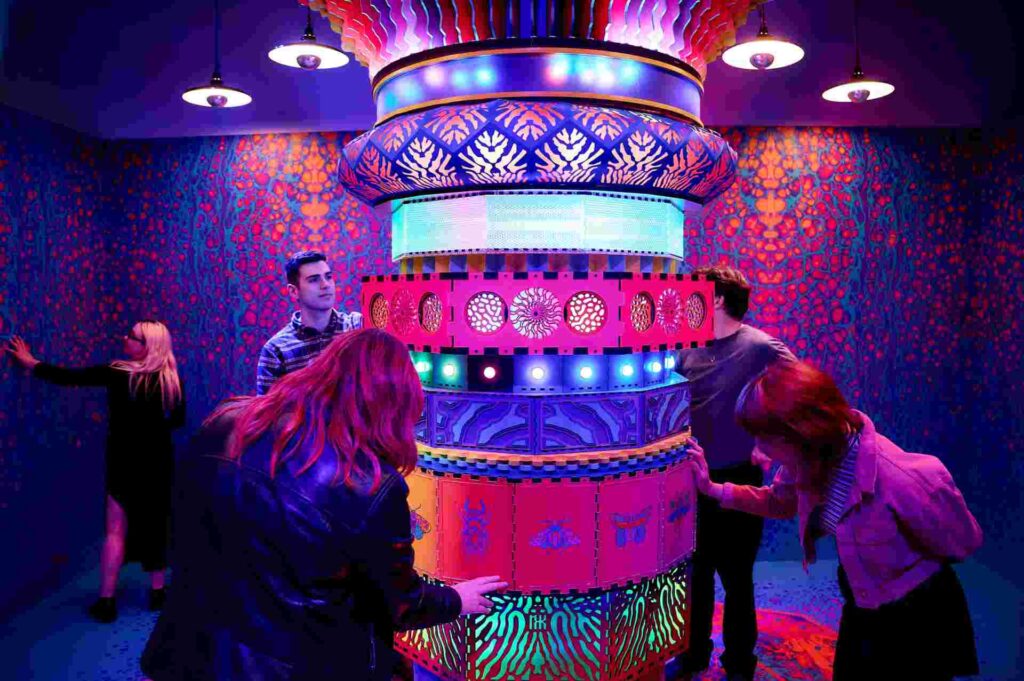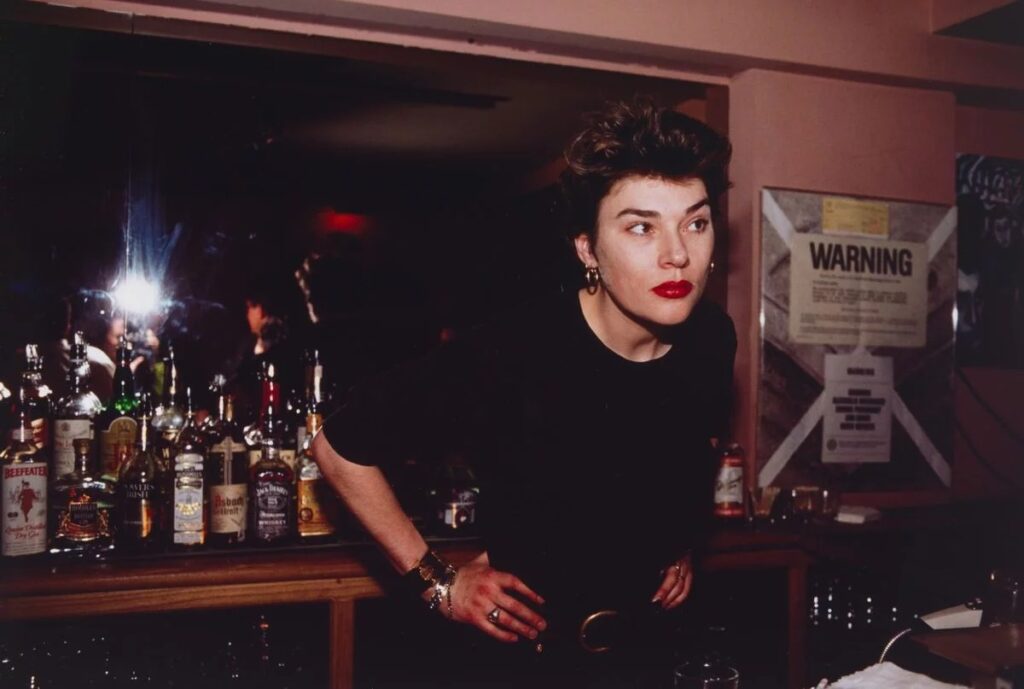Screenwriter Moira Buffini’s (Tamara Drewe) decision to employ a disjointed time sequence is interesting, and noticeably different in comparison with the trail of previous existing adaptations. The audience’s attention is seized from the very beginning as a distressed Jane Eyre (Mia Wasikowska) flees across open plains in stormy weather only to collapse at the door of St John Rivers’ (Jamie Bell) house. Through a series of flashbacks Jane’s history is completed, from her tortured childhood at home and at boarding school, to her first meeting with the stern but ultimately charming Mr Rochester (Michael Fassbender) at Thornfield Hall.
Australian Mia Wasikowska (Alice in Wonderland, The Kids Are All Right) plays a plain and simple Jane Eyre, true to the text, a welcome change from the slightly more glamorous interpretations of the past, including the iconic portrayal by Joan Fontaine. Her acting is subtle and nuanced, never succumbing to the potential melodramatic dialogue, characterising Jane as the unyielding and self-confident woman Brontë intended.
However the film is not a one-woman show. Alongside Wasikowska, Michael Fassbender (Inglourious Basterds, X-Men: First Class) delivers a slight twist on the typical Gothic male character mixing surprising charm with the dry wit and brooding presence of Mr Rochester. As Rochester’s housemaid, Judi Dench (no stranger to costume dramas: Mrs Brown, Shakespeare in Love, Cranford) is exceptional, as expected, but sadly underused mainly providing the odd exposition or societal commentary. Jamie Bell (Billy Elliot, Defiance) performs well but may be slightly miscast as St John Rivers, lacking the ambition and religious enthusiasm evident in the source material.
The adaptation heightens the Gothic atmosphere of Brontë’s novel, hinting at supernatural explanations and filming scenes with natural light, leaving candles alone to illuminate the dark corridors and rooms in which the action takes place. Still, dark and gloomy settings do not distract from the beauty of the cinematography and refrain from overshadowing important aspects of romanticism.
Despite the strong performances and stirring visual elements, Fukunaga’s Jane Eyre seems undercooked. It may be an issue of length, two hours not allowing enough time to develop such rich characters and, most notably, the relationship between Rochester and Eyre. As a result the characters’ motives become questionable and weak, or abrupt and improbable, while a sense of mystery and tension does not build as necessary before revealing the dramatic climax.
